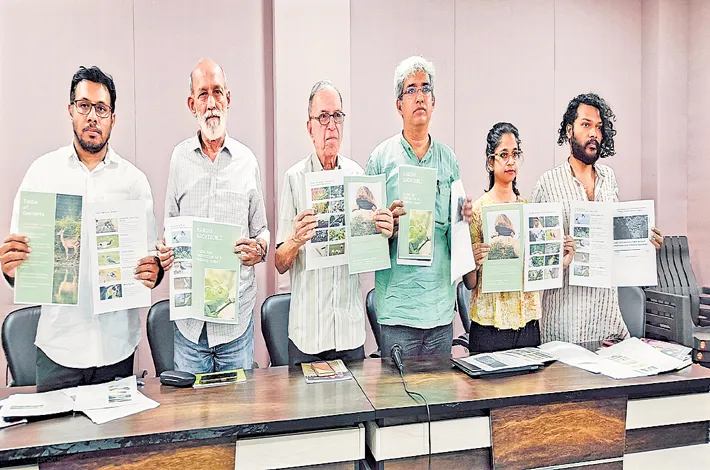The Importance of Caring and Sharing in Life
01-04-2025 12:47:29 AM

A Focus on Young Indian Couples
Moreover, sharing dreams and aspirations is equally crucial. Young Indian couples today are ambitious, often pursuing higher education, entrepreneurial ventures, or creative passions. By openly discussing their goals and supporting each other’s endeavors, they create a relationship that is not just about coexistence but mutual growth. A husband encouraging his wife to start her own business or a wife standing by her husband during a career transition exemplifies how sharing fosters resilience and unity
In the vibrant tapestry of Indian society, where traditions blend seamlessly with modernity, the values of caring and sharing hold a special place. These timeless principles, deeply rooted in India’s cultural ethos, are not just moral ideals but practical necessities for fostering strong relationships and building a harmonious life. For young Indian couples, navigating the complexities of contemporary life—balancing careers, family expectations, and personal aspirations—caring and sharing become the glue that binds their partnership and enriches their journey together.
The Essence of Caring and Sharing
Caring is the act of showing empathy, concern, and affection toward another person. It manifests in small gestures—listening attentively, offering support during tough times, or simply being present. Sharing, on the other hand, goes beyond material possessions; it involves opening one’s heart, time, and dreams with a partner. Together, these values create a foundation of trust, mutual respect, and emotional security, which are vital for any relationship to thrive.
For young Indian couples, these principles take on added significance. India’s youth today are at a unique crossroads, embracing global influences while staying connected to their cultural heritage. The fast-paced urban lifestyle, coupled with the pressures of nuclear families and demanding careers, often leaves little room for emotional bonding. In such a scenario, caring and sharing become essential tools to nurture love and understanding.
Strengthening Marital Bonds
Marriage in India is often seen as a union of not just two individuals but two families. For young couples, this can mean navigating a web of expectations from in-laws, adjusting to new roles, and sometimes even managing long-distance relationships due to work commitments. Caring and sharing act as bridges to overcome these challenges.
Take, for instance, a young couple in Mumbai, where both partners work long hours in the corporate world. The husband might come home exhausted, while the wife juggles her job and household responsibilities. A simple act of caring—preparing a cup of tea for each other or asking about the day—can ease the tension and foster closeness. Sharing responsibilities, such as dividing household chores or planning finances together, ensures neither feels overwhelmed. These small acts build a partnership where both feel valued and supported.
Moreover, sharing dreams and aspirations is equally crucial. Young Indian couples today are ambitious, often pursuing higher education, entrepreneurial ventures, or creative passions. By openly discussing their goals and supporting each other’s endeavors, they create a relationship that is not just about coexistence but mutual growth. A husband encouraging his wife to start her own business or a wife standing by her husband during a career transition exemplifies how sharing fosters resilience and unity.
Building a Future for the Next Generation
Caring and sharing are not just about the present; they shape the future, especially when children enter the picture. Young couples who practice these values set a powerful example for their kids. In a country where family remains the cornerstone of society, teaching the next generation to care for others and share generously ensures the continuity of India’s communal spirit.
Consider a couple in Bangalore raising a toddler. By caring for each other—perhaps taking turns to manage sleepless nights or celebrating small parenting victories—they demonstrate teamwork. Sharing resources, like time or even a favorite snack with their child, instills values of generosity and empathy early on. These habits ripple outward, influencing not just their immediate family but also their community.
Overcoming Modern Challenges
The digital age has brought both opportunities and obstacles for young Indian couples. Social media, while connecting people, can also create distance within relationships. Couples may find themselves scrolling through their phones instead of talking to each other. Here, caring means putting the phone down to listen, and sharing means engaging in meaningful conversations rather than superficial updates.
Financial pressures are another reality for many young couples, especially in urban India where the cost of living is soaring. Sharing financial burdens—whether it’s budgeting together or making joint decisions about investments—reduces stress and builds trust. Caring, in this context, might mean understanding a partner’s anxiety about money and offering reassurance rather than judgment.
A Cultural Legacy
India’s rich traditions, from the joint family system to festivals like Diwali and Raksha Bandhan, emphasize caring and sharing. Young couples can draw inspiration from these customs while adapting them to modern life. Hosting a small dinner for friends, helping a neighbor, or volunteering together are ways to extend these values beyond their relationship. In doing so, they contribute to a society that thrives on interconnectedness.
Conclusion
For young Indian couples, caring and sharing are not optional virtues but essential ingredients for a fulfilling life. They transform marriages into partnerships of equals, where love is not just felt but actively expressed. In a world that often prioritizes individual success, these values remind couples to slow down, connect, and build something meaningful together. As India’s youth step into the future, carrying forward the legacy of caring and sharing ensures that their relationships—and their society—remain strong, compassionate, and deeply human.








